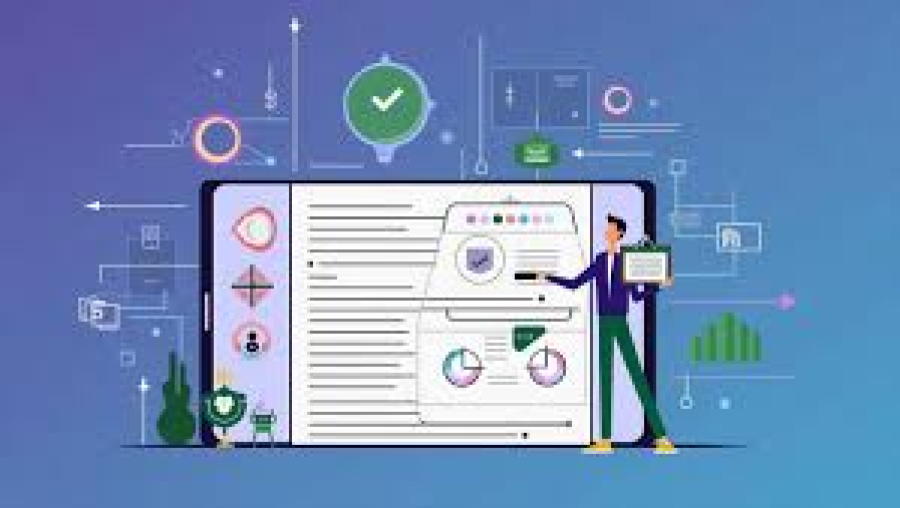AI and Freelancing: Opportunities and Challenges
Artificial Intelligence (AI) is rapidly transforming industries worldwide, and freelancing is no exception. As freelancers seek to stay competitive in an evolving digital marketplace, AI offers both tremendous opportunities and unique challenges. In this article, we’ll explore how AI is reshaping the freelance industry, its potential benefits, and the obstacles freelancers may face in adapting to this new technology.
The rise of Artificial Intelligence (AI) has brought about a significant shift in the freelance industry, offering new opportunities for increased productivity, enhanced client services, and more efficient business operations. However, along with these advantages, AI also presents certain challenges that freelancers must navigate to stay relevant in an increasingly automated world.
Here are some key points outlining the impact of AI on freelancing:
Opportunities for Increased Productivity:One of the most exciting aspects of AI is its ability to automate routine tasks, which can significantly increase productivity for freelancers. AI-powered tools can automate administrative work like invoicing, scheduling, email management, and even social media posting. This allows freelancers to free up valuable time and focus on higher-value tasks, such as creative work or client engagement. For instance, AI tools like chatbots can handle client inquiries, reducing the need for constant manual communication.
AI in Content Creation and Design:AI-driven tools have become essential for freelancers in creative fields like writing, graphic design, and video production. From content generation to design automation, AI technologies can assist freelancers by speeding up the creation process. Tools like Jasper (AI for writing) and Canva (AI-powered design suggestions) help freelancers produce high-quality work with less effort. While AI tools are helpful, they also push freelancers to remain creative and innovative in ways that AI cannot replicate, maintaining their unique value in the market.
Enhancing Client Services with AI:Freelancers can leverage AI to offer enhanced services to their clients. For example, AI-based analytics tools can provide clients with in-depth data insights, helping freelancers make data-driven recommendations and decisions. Freelancers can also use AI-powered personalization tools to offer more tailored solutions to clients, improving client satisfaction and fostering long-term relationships. AI also enables freelancers to stay updated on trends, helping them offer the latest in industry standards.
AI-Powered Project Management:Freelancers managing multiple clients and projects can benefit from AI-powered project management tools like Trello, Asana, and Monday.com. These platforms use AI to streamline task allocation, monitor deadlines, and help organize work more efficiently. AI can also track time spent on tasks, analyze productivity, and suggest improvements in workflow. By utilizing these AI tools, freelancers can enhance their project management skills and deliver better results to clients.
AI for Freelance Marketing and Branding:For freelancers, establishing a strong personal brand and effective marketing strategy is key to success. AI tools can analyze data from social media platforms to create insights into audience behavior, preferences, and engagement trends. Freelancers can use these insights to fine-tune their content strategy, enhance their online presence, and drive more traffic to their portfolios. AI can also automate content generation for blogs, social media posts, and email marketing, making it easier for freelancers to maintain consistent branding and engagement.
Challenges of AI Integration for Freelancers:Despite the many opportunities AI presents, freelancers face certain challenges when incorporating AI into their workflow. One major challenge is the initial learning curve. Freelancers need to invest time and effort into understanding how to use AI tools effectively. Some freelancers may also feel the pressure of AI’s potential to automate certain tasks that were once their domain, leading to job insecurity. Additionally, AI is not without its limitations, especially when it comes to creativity and human intuition, which remain vital to many freelance professions.
Ethical Considerations and AI Transparency:As AI continues to grow, freelancers must consider the ethical implications of using AI. Freelancers should ensure that AI tools are used transparently and responsibly. For example, when using AI-generated content, freelancers should disclose its use to clients and ensure that it complies with legal and ethical standards. There may also be concerns about AI-driven bias or privacy issues, which freelancers need to stay aware of as they adopt new technologies.
The Future of AI in Freelancing:As AI technology continues to improve, it’s clear that it will play a significant role in the future of freelancing. Freelancers who embrace AI and learn to use it effectively will gain a competitive edge in the market. AI is here to stay, and its applications in the freelance industry are likely to expand, creating even more opportunities for those who are adaptable and willing to learn.
In conclusion, AI offers substantial opportunities for freelancers to increase productivity, enhance services, and manage projects more efficiently. However, freelancers must also be mindful of the challenges AI presents and learn how to integrate these technologies into their workflow responsibly. By doing so, freelancers can navigate the evolving freelance landscape and harness the power of AI to advance their careers.


 by Emily
by Emily




